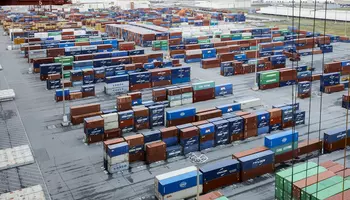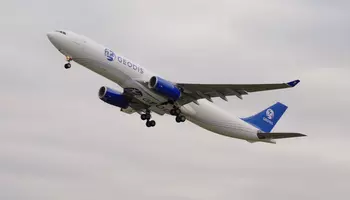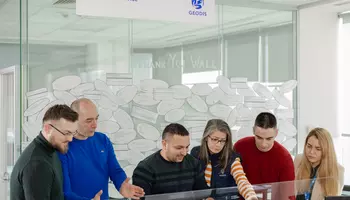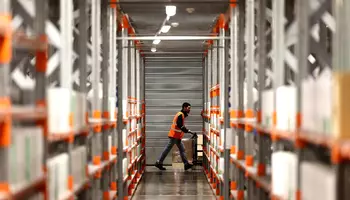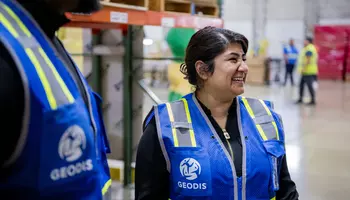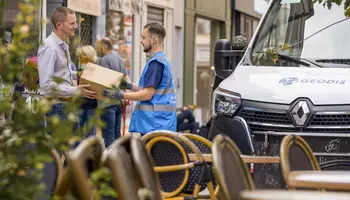
German Environment Minister Hendricks highlights recycling processes at the GEODIS High-Tech Center as exemplary
Federal Environment Minister Barbara Hendricks visited the GEODIS site in Nieder-Olm to observe the multi-stage recycling processes for electronic waste there. Germany recently amended the Electrical and Electronic Equipment Act that regulates such waste disposal.
Frankfurt am Main, August 25, 2015 – Over 40 million tons of electronic waste accumulate worldwide according to UN figures. Greenpeace estimates that two-thirds of it never finds its way to proper recycling centers, despite legal regulations. In its High-Tech Center in Nieder-Olm, the Contract Logistics Line of Business of the logistics service provider GEODIS takes care of such scrap, recycling it or disposing of it in compliance with the newest methods. With the newly amended laws on electronic waste disposal in Germany in the background, Barbara Hendricks, the Federal Minister for Environment, Nature Conservation, Building and Nuclear Safety, and Malu Dreyer, chief executive of the German state of Rheinland-Palatinate, visited the GEODIS site in Nieder-Olm to be informed about the logistics provider’s recycling model.
At its High-Tech site in Nieder-Olm, GEODIS takes care of all aspects of recycling and disposal of used electronic equipment for customers like IBM. This includes notebooks, PCs, printers, monitors, and storage systems. GEODIS refurbishes used IT equipment that can then be re-used. If that is impossible because of major defects in the equipment, it undergoes so-called parts harvesting: usable components are identified, dismantled, tested, ESD-securely packaged, and can then be re-used. In dismantling and separating materials, GEODIS manages to reach an average recycling quota of 90 percent on the basis of materials, amounting to 95 percent when energy recovery is calculated as well. Thus GEODIS is already well over the legally required rate; the newly amended law raised the quota for material and energy recycling from 75 to 80 percent.
The new law that the German Environment Minister worked out requires that electrical and electronics retailers with a store size over 400 square meters take back old appliances when customers purchase comparable new ones. Dealers can recycle the old products themselves or pass them on to a service provider like GEODIS. Collecting a high rate of used electrical equipment guarantees that more of it will be recycled and minimizes illegal disposal in foreign countries. The revised law specifies that the recycling quota for electrical appliances and electronics be raised by five percent. One of its priorities is to avoid waste – GEODIS provides an example by showing how that can be achieved on a professional industrial scale.
“It was a great pleasure for us to be able to convince Ms. Hendricks of the success of our system while she was on-site at our High-Tech center,” stated Andrea Metzger, Managing Director at GEODIS. “Our job as a service provider is to work actively with the industry to increase the collection rate for electronic waste. It is a highly positive signal for us that the Environment Minister commended our center as a showcase and our recycling system as an exemplary model.” The GEODIS site in Nieder-Olm was also recently awarded the “TÜViT” certificate for secure data erasure.
GEODIS does not just concentrate on non-ferrous and precious metals in recycling. Old, discarded electrical and electronic equipment is a source not only of basic materials such as aluminum and copper, but also of special metals like rare earths, i.e. valuable metals like neodymium. Currently there is no neodymium reprocessing worth mentioning in Germany. It is generally lost during regular metal recycling. In order to make use of such resources in the future, GEODIS is supporting a pilot project called closetheloop.de, which aims at recycling rare earths and is run by Dr. Zepf, the head of the Institute for Geography, Resource Strategy, and Recycling Management in Augsburg. GEODIS provided Dr. Zepf 50,000 hard disks for his research on neodymium recovery. The goal of the project is to recycle rare earth metals like neodymium by exploiting secondary sources. Extraction of neodymium from ore requires large amounts of energy and also produces poisonous by-products that can harm the environment. Neodymium is used in the production of smart phones, among other things, and is becoming increasingly important due to the shorter and shorter life spans of such devices.
The international scope of the event was underlined by the presence of Thomas Kraus, Chief Marketing Officer of the GEODIS Group, who came in from the Group’s headquarters in Paris. “Our well-established services for the high-tech sector play an important role in an international context, as well. The worldwide presence of the GEODIS Group makes it possible for us to provide solutions that are international in scope as well as tailor-made to fit the needs of a specific branch. This is certainly unique in this form,” Kraus stated.



People in the pictures: Matthias Wilke, Deputy Branch Manager Nieder-Olm, Malu Dreyer, Ministerpräsidentin von Rheinland-Pfalz, Barbara Hendricks, Bundesministerin für Umwelt, Naturschutz, Bau und Reaktorsicherheit, Christian Meindl, Director High Tech & Automotive, Thomas Kraus, Chief Marketing Officer.





















































 Go back
Go back

















